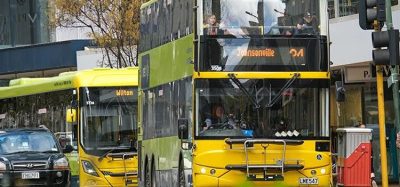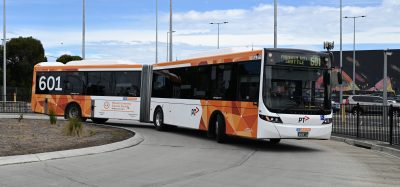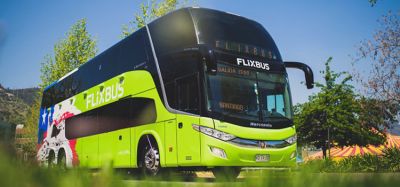Community Air Mobility Initiative (CAMI) aims to develop and support air mobility integration
- Like
- Digg
- Del
- Tumblr
- VKontakte
- Buffer
- Love This
- Odnoklassniki
- Meneame
- Blogger
- Amazon
- Yahoo Mail
- Gmail
- AOL
- Newsvine
- HackerNews
- Evernote
- MySpace
- Mail.ru
- Viadeo
- Line
- Comments
- Yummly
- SMS
- Viber
- Telegram
- Subscribe
- Skype
- Facebook Messenger
- Kakao
- LiveJournal
- Yammer
- Edgar
- Fintel
- Mix
- Instapaper
- Copy Link
Posted: 13 November 2019 | Intelligent Transport
The Community Air Mobility Initiative (CAMI), a non-profit industry association dedicated to providing communities and decision makers with the information needed to successfully integrate aviation into daily transportation options, has officially launched.


The Community Air Mobility Initiative (CAMI) has officially launched with the support of its founding members. CAMI is a non-profit industry association dedicated to providing communities and the decision makers that support them with the information and tools that will be vital to the successful integration of aviation into daily transportation options.
CAMI’s goal is to support the responsible integration of urban air mobility (UAM) into communities through education, communication and advocacy. CAMI is said to connect communities and industry by providing resources and education to the public and decision makers at the state and local level. CAMI is supported by its members, which cover a wide spectrum of stakeholders in the emerging urban air mobility industry.
On the genesis of CAMI, co-Executive Director Anna Dietrich, said: “New technologies and new aircraft promise to make flight accessible and practical on a daily basis for more people than ever before. With that promise comes the responsibility to integrate those aircraft into our communities safely, responsibly and equitably. We created CAMI as the industry’s commitment to our neighbours and the decision makers who support them to work to ensure that happens.”
Greg Bowles, Head of Government Affairs at CAMI Founding Supporting Member Joby Aviation, added: “We are excited to be a part of CAMI and work closely with communities to achieve the goal of creating a new transportation solution that saves people time. Communities will play a very important role in realising the benefits of safe, urban air transportation in a clean and quiet manner.”
“As the aviation industry continues to mature the technologies needed to bring electric aircraft into communities, it became clear that the most important need was to bridge the work of the industry with the local communities where this technology will be implemented,” said Yolanka Wulff, co-Executive Director. “CAMI understands the importance of working with all of the stakeholders to develop urban air mobility that integrates with existing and future urban and regional transportation systems.”
Related topics
Infrastructure & Urban Planning, Mobility Services, Traffic Management
Related organisations
Joby Aviation, The Community Air Mobility Initiative (CAMI)
Related people
Anna Dietrich, Greg Bowles, Yolanka Wulff








